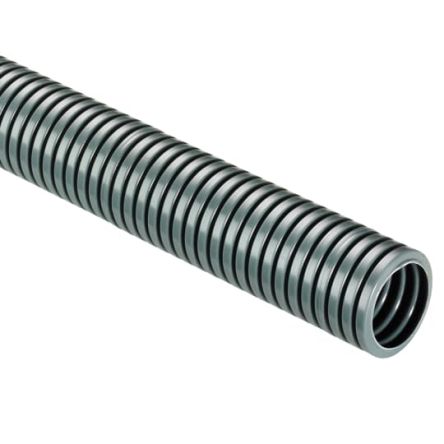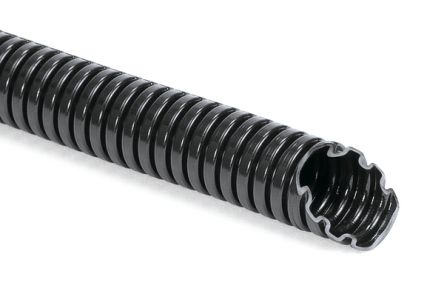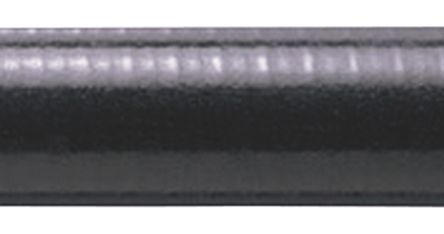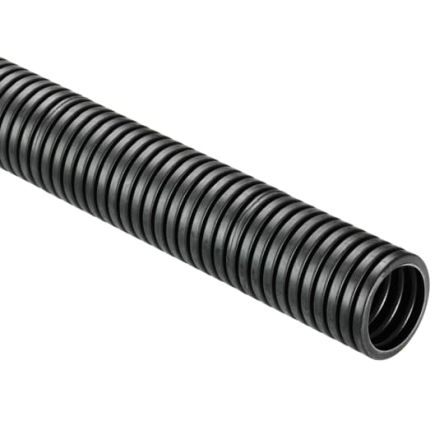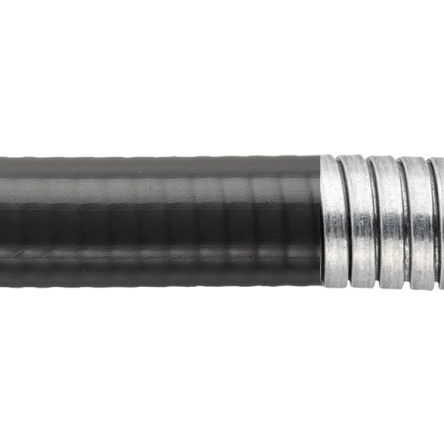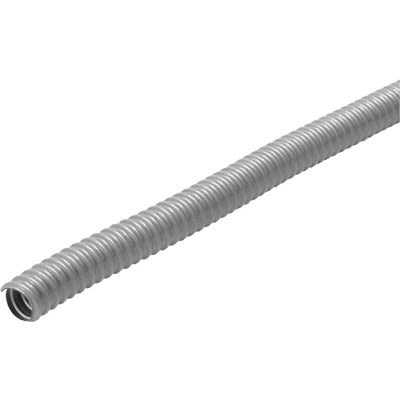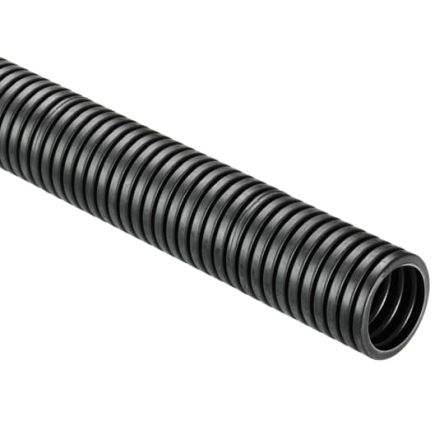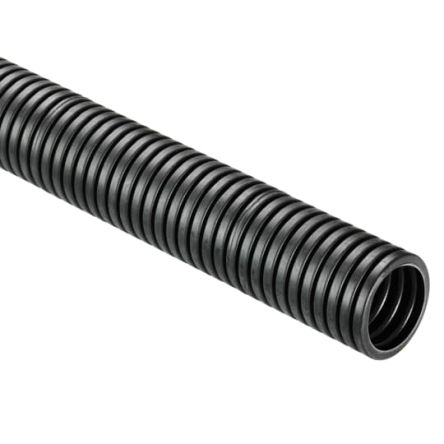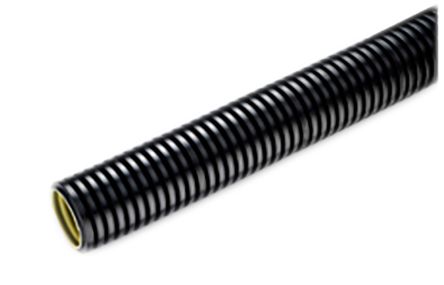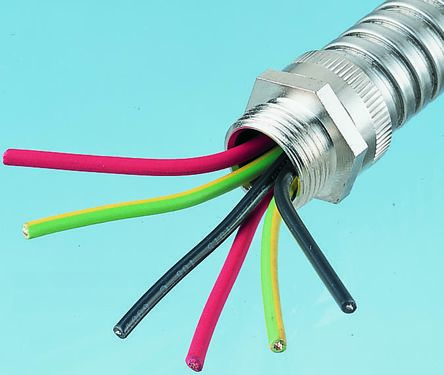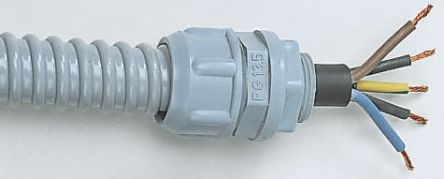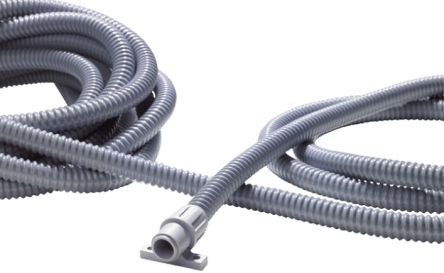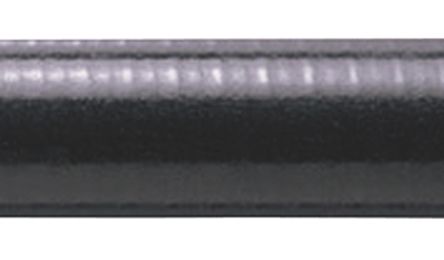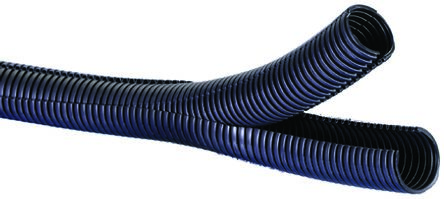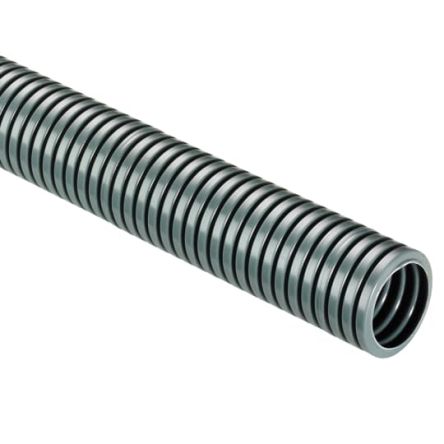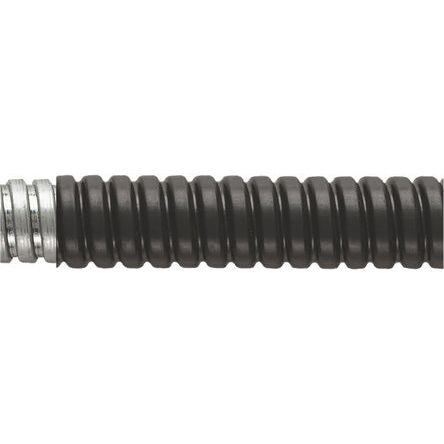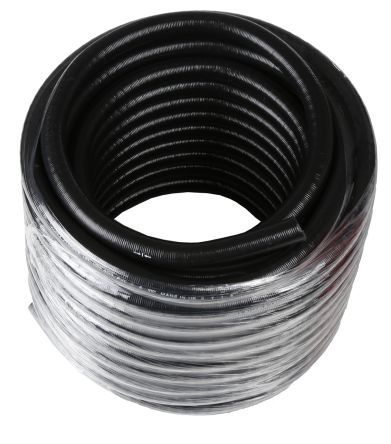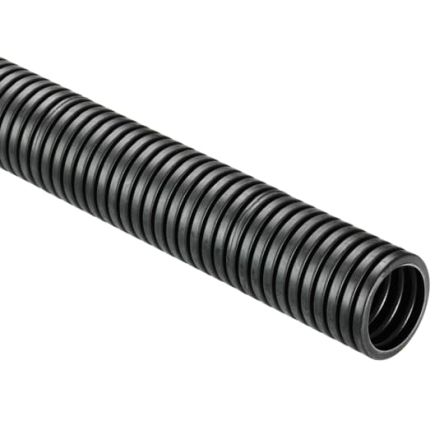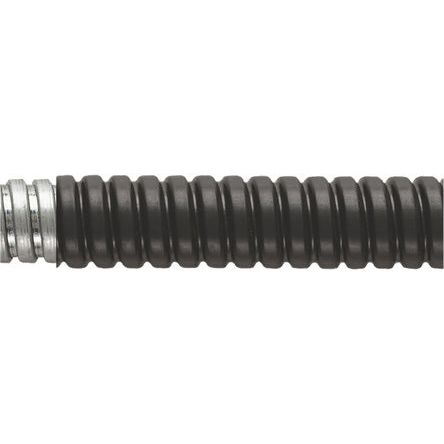- Automation & Control Gear
- Cables & Wires
- Enclosures & Server Racks
- Fuses & Circuit Breakers
- HVAC, Fans & Thermal Management
- Lighting
- Relays & Signal Conditioning
- Switches
- Batteries & Chargers
- Connectors
- Displays & Optoelectronics
- ESD Control, Cleanroom & PCB Prototyping
- Passive Components
- Power Supplies & Transformers
- Raspberry Pi, Arduino, ROCK, STEM Education & Development Tools
- Semiconductors
Conduit
Conduits, vital tubings within electrical installations, serve to safeguard and guide electrical wires, ensuring their protection from external elements and providing a designated pathway for safe electrical wire installation. Available in various materials such as plastic, steel, galvanized steel, nylon, PVC, PP, and steel spring wire, conduits are tailored to specific needs and environments. Plastic conduits offer flexibility and are well-suited for residential and light commercial installations, while steel or metal conduit pipes provide robust protection in industrial settings.
Galvanized steel conduits are corrosion-resistant, ideal for outdoor use, while nylon conduits offer durability and abrasion resistance. PP and PVC conduits excel in corrosive environments, while steel spring wire conduits provide flexibility for tight spaces. Conduits are integral to protecting wires in open areas, underground installations, or within walls, ensuring electrical safety and reliability.
Types of Electrical Conduits
Conduits are essential components in electrical installations, offering protection and organization for wiring systems. There are three main electrical conduit types:
Rigid Conduits
Rigid conduits stand out for their durability and strength. Rigid Metal Conduits (RMC) and Intermediate Metal Conduits (IMC) are commonly used in industrial settings in the Philippines due to their robust construction, providing reliable protection against physical damage and environmental hazards. On the other hand, rigid PVC conduits offer versatility and corrosion resistance, making them suitable for residential and commercial applications where flexibility and ease of installation are essential.
Flexible Conduits
Flexible conduits, such as Flexible Metallic Conduits (FMC), provide flexibility and adaptability in installations where movement or bending is required. FMC is commonly used in applications with vibration or movement, ensuring secure protection while allowing for adjustments. Additionally, Liquid-Tight Flexible Metal Conduits (LFMC) offer enhanced protection against moisture and liquids, making it suitable for outdoor or wet environments. Electrical Non-Metallic Tubing (ENT) conduits are another flexible option, ideal for residential wiring in areas with minimal exposure to physical damage.
Speciality Conduits
Speciality conduits are designed to cater to specific applications. Galvanized Iron (GI) conduits, for instance, offer additional corrosion resistance, making it suitable for use in hazardous environments. Understanding the different types of conduits and their specific advantages is crucial in selecting the most suitable option for a particular application, ensuring optimal performance and longevity of the electrical system.
Types of Materials Used for Conduits
These three categories are further divided into specific types of conduits, including:
- IMC (Intermediate Metal Conduit): A sleeker, lighter version of RMC that is often accepted for the same uses as RMC.
- RMC (Rigid Metal Conduit): One of the most durable types of electrical conduits, made of galvanized steel. It has excellent protection and can support boxes, cables, and other electrical equipment.
- EMT (Electrical Metallic Tubing): A thin metal tube that is easy to bend and twist using a conduit bender. It can be cut with a small or 12V reciprocating saw with a high TPI blade.
- FMC (Flexible Metal Conduit): Has a spiral shape that allows it to flex over short distances. It is useful for adding conduits in tight spaces or around existing equipment.
- LFMC (Liquid-Tight Flexible Metal Conduit): Similar to FMC but has a waterproof covering, suitable for use in outdoor areas.
- ENT (Electrical Non-Metallic Tubing): A flexible PVC conduit tubing that can be used in place of EMT and run behind walls and encased in concrete. It has a 2-hour fire resistance rating but is not UV-resistant.
- Rigid PVC: Heated and bent before use. It is watertight when properly installed and has the same properties as a water pipe as an electrical conduit.
- Galvanised Iron (GI) Conduit: A type of electrical conduit made from a mixture of iron and zinc, with a protective coating of galvanisation. Commonly used in electrical installations for the protection and routing of electrical wiring.
Advantages of Electrical Conduits
- Safe and Reliable Wiring: Electrical conduits provide a safe and secure path for electrical wires. It encloses and protects the wires from damage that occurs if they are left exposed.
- Conveniently Used in Humid Places: Electrical conduits are made of materials that are resistant to moisture and humidity. Good for use in damp or humid environments, such as bathrooms and kitchens.
- Long-Term Usage: Electrical conduits are durable, ideal for use in long-term installations. It can withstand the wear and tear of daily use over time.
- Easy to Install: Electrical conduits are relatively easy to install. It can be cut to size and bent to fit around corners - a versatile choice for a wide range of applications.
- Cost-Effective: Electrical conduits are affordable. It is widely available and good for both residential and commercial installations.
Application of Electrical Conduits
Conduits of all types play a vital role in a wide range of industries and applications, ensuring the safety and reliability of electrical systems. They are extensively used in residential wiring for homes, providing protection for wiring systems and enhancing overall safety. In commercial buildings, conduits organize and safeguard electrical wiring, contributing to efficient power distribution and maintenance. Industrial facilities rely on conduits to protect wiring from harsh environments and mechanical damage, ensuring uninterrupted operations.
Similarly, in healthcare facilities and educational institutions, conduits ensure the safety and reliability of electrical systems, critical for patient care and educational activities. Outdoor and underground installations benefit from pipe conduit, offering protection against environmental elements and physical damage. In specialized installations like solar power setups, conduits also facilitate the safe and efficient distribution of electrical power generated by solar panels.
Selecting the Right Conduit
When selecting the appropriate type of conduit for an installation, several factors must be considered to ensure optimal performance and durability. The installation environment plays a crucial role, with factors such as exposure to moisture, chemicals, and physical damage influencing the choice of conduit material.
For example, in outdoor or corrosive environments, PVC conduit pipe may be preferred for its corrosion resistance, while metal conduit pipe offers superior mechanical protection in industrial settings. Your wiring needs and budget should also be taken into account, with flexibility and ease of installation being important considerations. Ultimately, choosing the right conduit involves balancing factors such as mechanical protection, flexibility, moisture resistance, and cost to meet the specific requirements of your installation.
Range of Conduits at RS Philippines
Are you searching for a comprehensive range of conduits? Do you need assistance with conduit types or pricing? Whether you’re in the Philippines or anywhere else, don’t hesitate to get in touch with us. Our dedicated customer support team is ready to address any inquiries and help you find the right conduits for your needs!
Popular Searches
Related links
- Adaptaflex Flexible Conduit PVC, White
- Conduit Fittings
- RS PRO Rigid Conduit Stainless Steel, Metal
- RS PRO Rigid Conduit Stainless Steel, Silver
- Adaptaflex Flexible Conduit PVC, White
- RS PRO Flexible Conduit Plastic, Black
- Kopex Flexible Conduit Stainless Steel, Metal
- RS PRO Flexible Conduit Galvanised Steel, Self Colour
